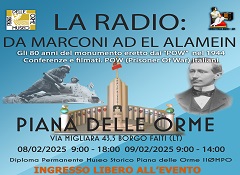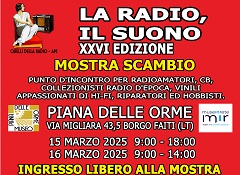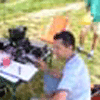IARU simulations confirm the low probability of interference
IARU simulations confirm the low probability of interference into RNSS receivers in the 23cm band.
Mar 7, 2023 - Spectrum - Barry, G4SJH

WRC23 – agenda item 9.1b
The IARU maintains the view that the likelihood of widespread and persistent interference from amateur radio activities to RNSS (e.g. Galileo) receivers in the 23cm band is minimal. The WRC-23 preparatory studies carried out in the ITU‑R study groups have only considered static one-to-one estimations using a minimum coupling loss approach. These studies do not consider the effect of an amateur transmitter on a population of RNSS receivers deployed around an amateur transmitting station.
Therefore IARU volunteers have carried out a “Monte Carlo” style study simulating scenarios assuming a fixed and mobile population of RNSS receivers deployed around an amateur station. A 100W amateur ‘home station’ and a 25W eirp ‘repeater station’ have been assumed.
The simulation results suggest that at most only around 1% of a population of fixed and mobile RNSS receivers randomly situated around a transmitting amateur station location would have a small chance of receiving a signal level above the RNSS protection threshold identified in the relevant ITU‑R Recommendations. In most scenarios, the percentage of RNSS receivers impacted by interference above the threshold within the “simulation area” is far less than 1%. Even in the densest areas of amateur station activity and with the lowest clutter model the percentages remain less than 5%.

See video representations of the simulation scenario here: https://storage.iaru-r1.org/index.php/s/Yg7KnGTsM9K35i3
The study assumed that an amateur station is transmitting throughout the whole “Monte Carlo” trial period. However event data collected by the IARU shows that even in the busiest amateur communities the amount of time during which these sporadic transmissions are most likely to occur amounts to less than 2% of time over a one year period.
Therefore the IARU maintains its position that the potential for widespread and persistent interference between amateur radio transmissions and RNSS receivers is minimal.
The IARU paper is available for sharing and can be found here: https://www.iaru-r1.org/wp-content/uploads/2023/03/23cm-Monte-Carlo-Study-March23.pdf
Mar 7, 2023 - Spectrum - Barry, G4SJH

WRC23 – agenda item 9.1b
The IARU maintains the view that the likelihood of widespread and persistent interference from amateur radio activities to RNSS (e.g. Galileo) receivers in the 23cm band is minimal. The WRC-23 preparatory studies carried out in the ITU‑R study groups have only considered static one-to-one estimations using a minimum coupling loss approach. These studies do not consider the effect of an amateur transmitter on a population of RNSS receivers deployed around an amateur transmitting station.
Therefore IARU volunteers have carried out a “Monte Carlo” style study simulating scenarios assuming a fixed and mobile population of RNSS receivers deployed around an amateur station. A 100W amateur ‘home station’ and a 25W eirp ‘repeater station’ have been assumed.
The simulation results suggest that at most only around 1% of a population of fixed and mobile RNSS receivers randomly situated around a transmitting amateur station location would have a small chance of receiving a signal level above the RNSS protection threshold identified in the relevant ITU‑R Recommendations. In most scenarios, the percentage of RNSS receivers impacted by interference above the threshold within the “simulation area” is far less than 1%. Even in the densest areas of amateur station activity and with the lowest clutter model the percentages remain less than 5%.

See video representations of the simulation scenario here: https://storage.iaru-r1.org/index.php/s/Yg7KnGTsM9K35i3
The study assumed that an amateur station is transmitting throughout the whole “Monte Carlo” trial period. However event data collected by the IARU shows that even in the busiest amateur communities the amount of time during which these sporadic transmissions are most likely to occur amounts to less than 2% of time over a one year period.
Therefore the IARU maintains its position that the potential for widespread and persistent interference between amateur radio transmissions and RNSS receivers is minimal.
The IARU paper is available for sharing and can be found here: https://www.iaru-r1.org/wp-content/uploads/2023/03/23cm-Monte-Carlo-Study-March23.pdf



 . . . . . . . . . . .
. . . . . . . . . . . 







